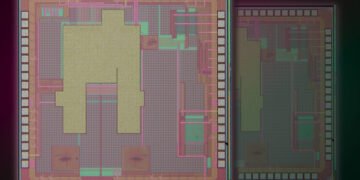Researchers at the University of Queensland have developed a nanoparticle to deliver chemotherapy drugs to aggressive, fast-growing brain tumors.
Research team leader Dr. Taskeen Janjua of UQ’s School of Pharmacy said the new silica nanoparticle could be loaded with temozolomide, a small molecule drug used to treat tumors known as glioblastoma. “This chemotherapy drug has limitations – it doesn’t stay in the blood for long, it can be taken out of the brain, and it can’t enter the blood into the brain,” Dr. Janjua said.
“To make the drug more effective, we developed a small, large-pore nanoparticle to help it cross the blood-brain barrier and enter the tumor while reducing unwanted side effects for the patient. “This strategy could be a more effective way to treat brain cancer and prevent it from coming back.”
Nanoparticles measure one billionth of a meter.
Nanoparticle delivery was tested using 3D spheroids, a heterogeneous structure designed to mimic brain tumor cell responses and interactions. The results of the study showed that in mice, nanoparticles accumulate well in the brain within a few hours without any negative effects on vital organs.
Brain cancer affects thousands of people every year and the chance of surviving at least five years is less than 23%. Cancer Australia statistics show that it is the ninth leading cause of cancer death in Australia in 2020.
The author of the study, Assistant Professor Amirali Popat, said that although there is still more research to be done, the results are encouraging for people with brain cancer. “This new drug delivery system may improve the effectiveness of brain cancer treatment and may lead to new and better treatments for this devastating disease,” said Dr. Popat said.
“This research will accelerate the clinical development of promising medical technologies and help improve outcomes for brain cancer patients.
Source: University of Queensland




































